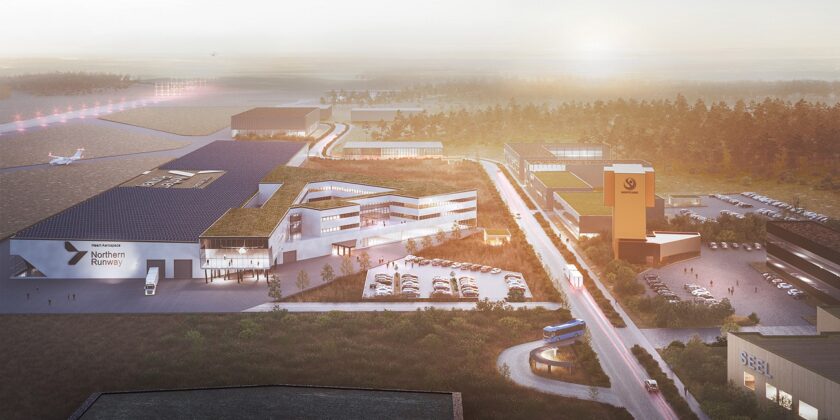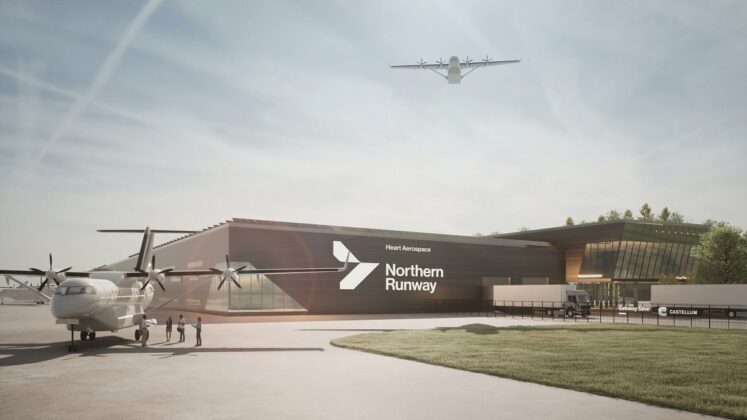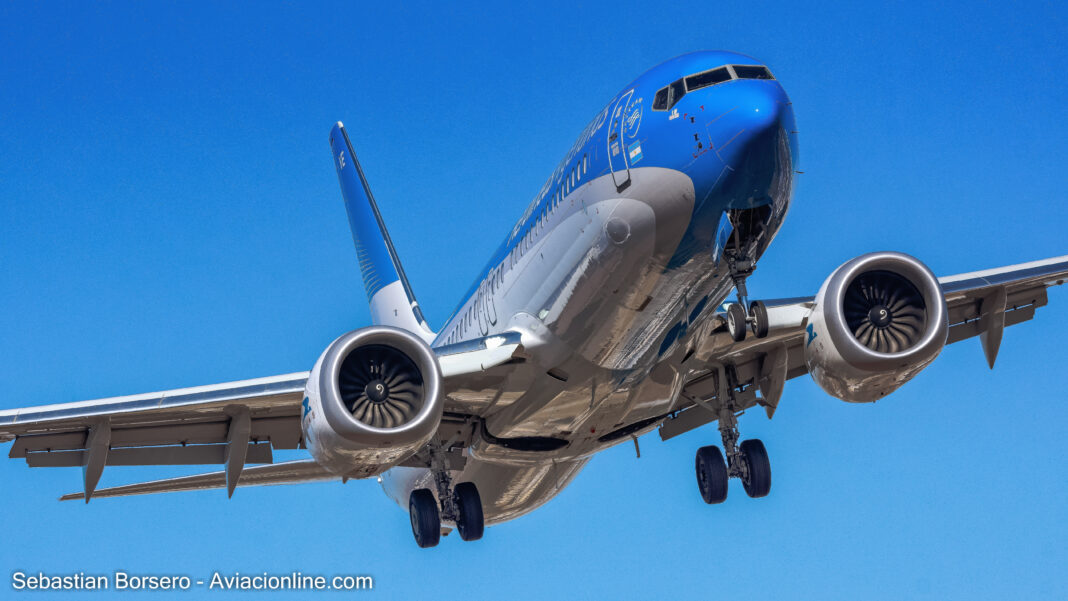Swedish electric aircraft manufacturer Heart Aerospace today unveiled major updates to the design of its first electric aircraft, the ES-30. It also announced that it will establish the world’s first commercial electric aircraft industry at Säve Airport, which serves the city of Gothenburg, Sweden.
According to a company press release, state-of-the-art sustainable offices and facilities for aircraft manufacturing and subsequent testing, both on the ground and in the air, will be built. Together, they will form a new space to be known as the Northern Runway.
In addition, the company confirmed Air Canada and Saab, the Swedish aircraft manufacturer, as new minority shareholders in the ES-30 development process. Both companies invested a sum of five million dollars.
The aim of the project is to bring to market an electric-powered regional aircraft capable of carrying up to thirty passengers. Previously, Heart Aerospace had designed a nineteen-seat model: the ES-19. According to the manufacturer, the ES-30 will replace it.

Gothenburg’s new electric aircraft industry
«We have a plan and it’s not just to build a new electric airplane, but a whole new industry», said Anders Forslund, founder and CEO of Heart Aerospace. «Sweden is the origin of flight shame, an anti-flying movement, but with Northern Runway we will make electric air travel a reality and preserve flying for future generations», he added.
The Northern Runway campus will be part of the Gateway Säve development area, owned by the company Castellum, where facilities are being built that will be dedicated to research and development work on sustainable logistics and electric mobility solutions.
The space is expected to generate new job opportunities in the long term. Specially, thanks to its proximity to Chalmers University of Technology, ranked among the top one hundred in the world in terms of graduate employability.
First phase of the Heart Aerospace facility construction process is scheduled to be completed by mid-2024. Test flights could then begin in 2026. The company expects to deliver the first ES-30 aircraft in 2028.
The ES-30
Aircraft will be fueled by battery-powered electric engines. It will thus operate without emitting greenhouse gases during flight and will have a substantially lower noise impact compared to regional aircraft powered by existing fossil-fueled engines.
In addition, it will include a hybrid standby configuration, consisting of two turbogenerators powered by sustainable aviation fuel (SAF). This will provide an additional power reserve guarantee that will not affect the range of the batteries. The system can be used on longer flights to complement electric propulsion.
According to the manufacturer, the ES-30 will have a range of up to 200 kilometres under electric propulsion and an extended range of 400 kilometres carrying up to thirty passengers. However, the aircraft will be able to fly up to 800 kilometres carrying twenty-five passengers, similar to many regional commercial services currently available.
«We have designed a cost efficient airplane that allows airlines to deliver good service on a wide range of routes», said Anders Forslund. «With the ES-30 we can start cutting emissions from air travel well before the end of this decade», he assured. «The response from the market has been fantastic», he added.
Previous orders for a total of two hundred ES-19s, placed by United Airlines and Mesa Air Group, plus the option to acquire another one hundred, were reconfirmed for the upgraded ES-30 design.
In addition, many holders of previously signed letters of intent have already updated their respective texts to formalise their interest in Heart Aerospace’s new aircraft. These include Braathens Regional Airlines, Icelandair, SAS and Sounds Air. Meanwhile, Rockton, a Swedish-based lessor with a focus on sustainable solutions for the industry, has just signed a letter of intent for up to forty aircraft.












